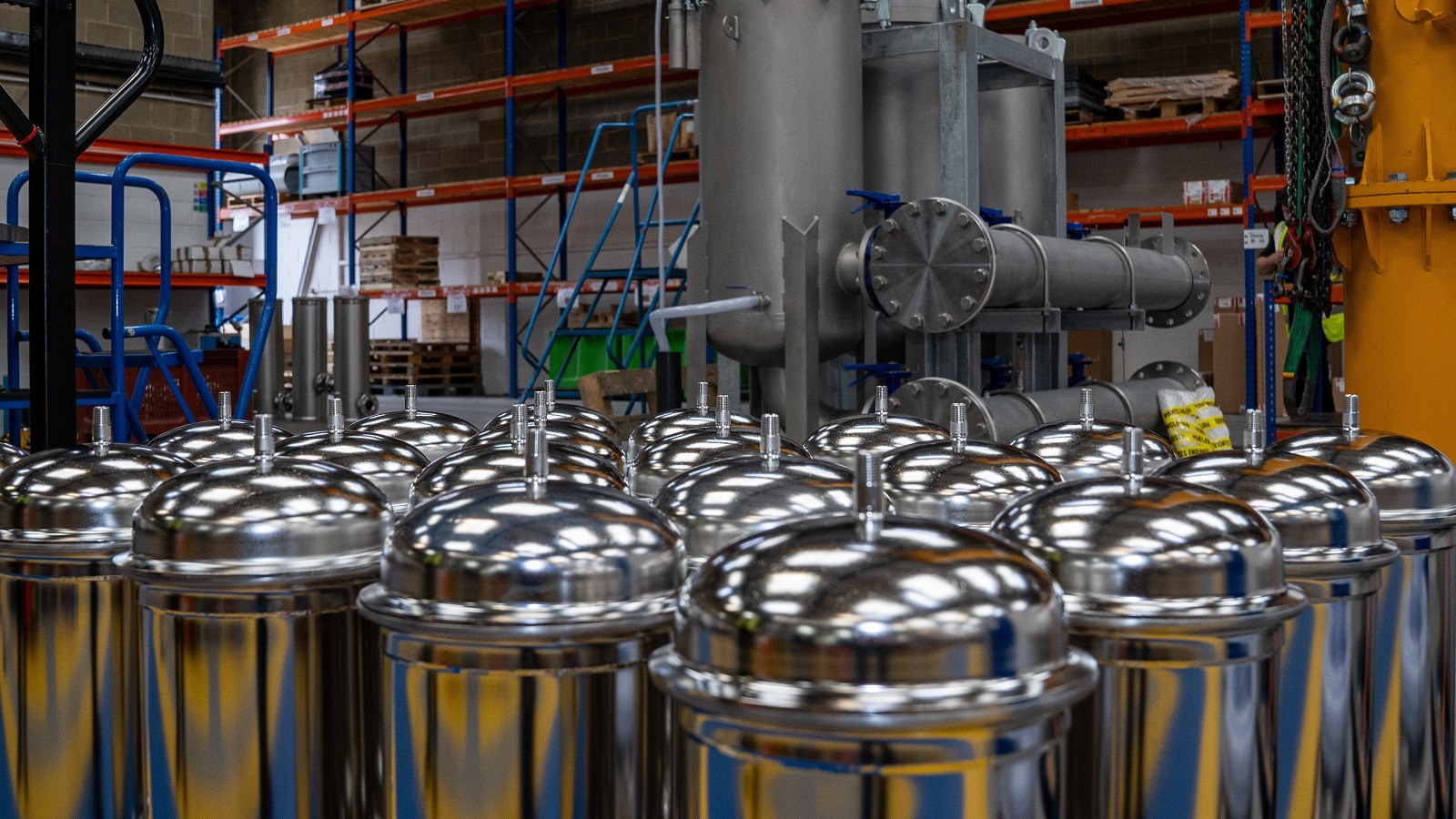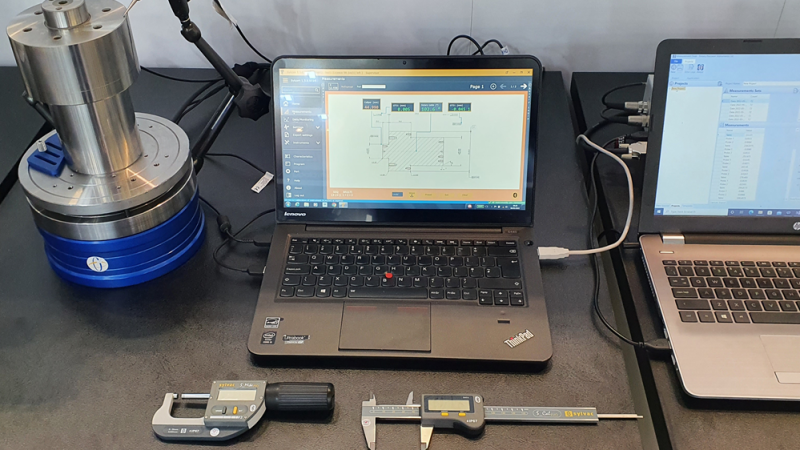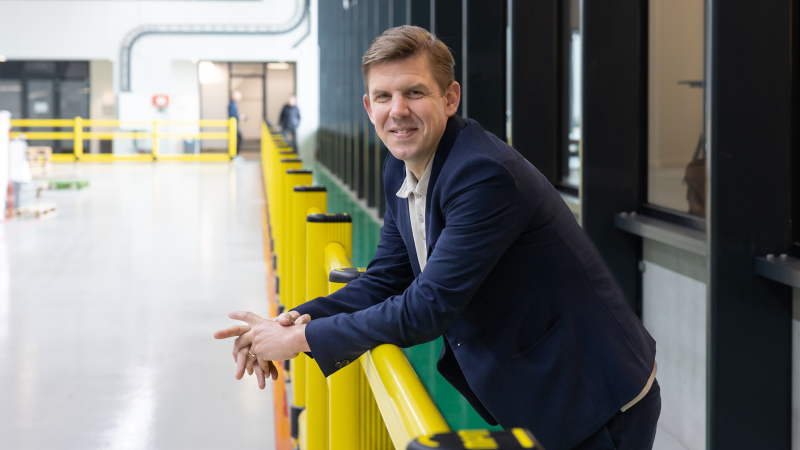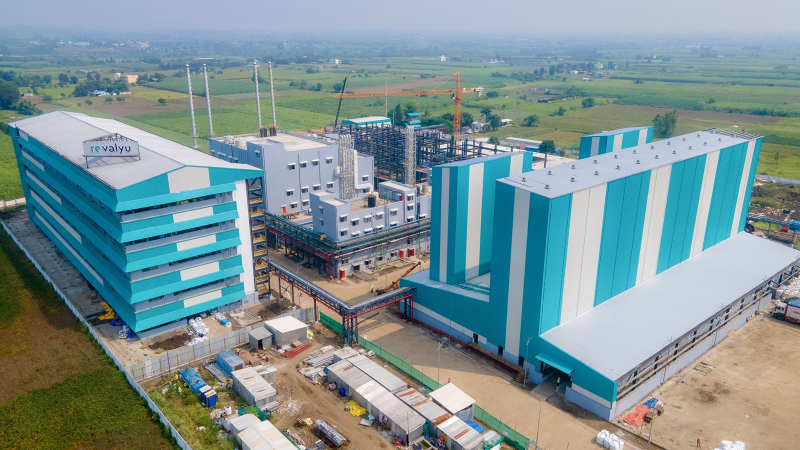British filter manufacturer Amazon Filters helps to solve its clients’ challenges in order to improve process purification and decontamination.
UK-based Amazon Filters is one of Europe’s leading manufacturers of high-quality liquid and gas filters. The company was founded in 1985 by Mike Pizzey, the father of current Managing Director Neil Pizzey.  Neil, a chartered manufacturing engineer with a background in the automotive industry, explained that the business has grown organically year-on-year since its establishment, in a market dominated by strong multinational players.
Neil, a chartered manufacturing engineer with a background in the automotive industry, explained that the business has grown organically year-on-year since its establishment, in a market dominated by strong multinational players.
“The recipe for success remains the same today as it was in the days when my father founded the company: a smaller business mindset makes it possible to be more flexible, closer to customers and perhaps more in tune with their needs than large corporate entities are able to be.”
Describing the core business, he says that Amazon Filters sells knowledge in the form of a physical product. “Nobody buys a filter because it looks nice on the mantelpiece. It is there to solve a problem. So recognising what that problem is, and helping people to solve it, is how we go about trying to run the business. My father recognised this, and we have always made sure that we have the expertise, the knowledge and the communication skills to be able to help our customers solve their problems.”
Irreplaceable Across a Range of Industries
Amazon’s filters are used to remove contamination from gas and fluids and are applied across a range of process industries from food and beverage, pharma and medical to water, chemical processes and oil and gas, right through to new energy production, including green hydrogen.
The product range includes membrane and depth filter cartridges and capsules, stainless steel filters, carbon filters, pleated filters and filter housings for liquid and gas as well as bespoke engineered projects, where the company works with clients to develop unique filter formats that address their specific requirements.
“You will find that in anything that’s very cutting edge in production, there are always challenges,” Neil points out. “And that’s where the problem-solving of a filtration business comes in. For example, we have been extremely active over the last few years supporting vaccine programmes, now we are very busy in green hydrogen production. We always look outwards and try to get ourselves involved at the start-up phases of new processes and new technologies.”
Today the company has a wide international reach. While based in the UK, Amazon Filters also has a production site and a sales office in Poland as well as sales offices and distributors around the world. Over 70% of total output is exported, with about half of that shipped to European countries.
Sustainable Approach
Like most manufacturers in Europe, Amazon Filters strives to minimise its impact on the environment and Neil affirms that sustainability is a constant priority for both business operations and investment.
Most of Amazon’s filters are made from plastics, a material that continues to be irreplaceable despite its current demonization, as it is often used in environments where alternatives could not be applied for practical or economic reasons.
“We are involved in the decontamination and purification of processes. As such, our products are essential, whether they are used in key production processes, to help pharmaceutical companies produce vaccines, to make drinking water safe or are used for energy generation. At present, there aren’t any alternative viable materials that could do the job,” explains Neil.
“However, we are always looking at more sustainably sourced plastic or alternatives to plastics, and progress in this area is advancing slowly but surely. We are currently looking at polypropylene made from recycled waste cooking and vegetable oil. This is a major step as essentially, this would mean the start of circular, sustainable use of plastics.”
He further emphasises that the quality of Amazon’s products is also an important aspect of sustainability. “A high-spec, high-quality, high-retention capacity filter lasts a long time. Anybody who’s really serious about sustainability and needs to be using plastic products has to be looking at using as few of them as possible. Our filters would commonly last twice as long as low-cost products, and hence come with a significantly reduced environmental impact.”
Expanded Capacity

Speaking about current market developments, Neil notes that the pandemic has brought about significant changes regarding security in the supply chain. While historically many companies worked with single-source supply, they are now moving away from that model as it has proven risky and unreliable in challenging times.
“I believe there’ll be opportunities for companies like ours because we’re capable and credible. We may start off as the second supplier for some customers but we’re pretty confident in our ability to demonstrate to customers that we can be a good first choice.”
To further enhance that ability, Amazon Filters has intensified its investment in business improvement. Last year, the company launched a £1 million capital investment programme to strengthen its production capacity and reach into global markets.
An additional 6,500 sq. ft warehouse has been leased, while the vacated storage facility is being converted into a new ground floor production hall, set to double the capacity to manufacture pleated filter cartridges, a mainstay of the company’s product range, with a mezzanine component warehouse on the first floor. Alongside the infrastructure spending, the company has steadily increased the size of its workforce to around 250 personnel.
Doing the Right Thing
“Our investment programme in the UK will support our reach internationally, which has been bolstered by the hiring of new business development managers in both the Americas and Asia-Pacific regions. We have also appointed new partners and distributors tasked with pursuing sales growth in these territories,” says Neil Pizzey.
“Emerging markets are always interesting; in many ways, they have bigger problems to solve in terms of process issues than more established companies in the developed world, such as purification of heavily contaminated water for example. And as I said earlier, filters are problem solvers.”
In conclusion, he affirms that the company is set to follow its growth trajectory. “We have managed to grow organically year-on-year throughout our existence for nearly 40 years which has included some fairly tumultuous periods, not least of which the last few years. That is the achievement I’m most proud of. That ability to secure continuous growth says that we’re doing something right. I’m a great believer that if you do the right things, then success will follow.”







